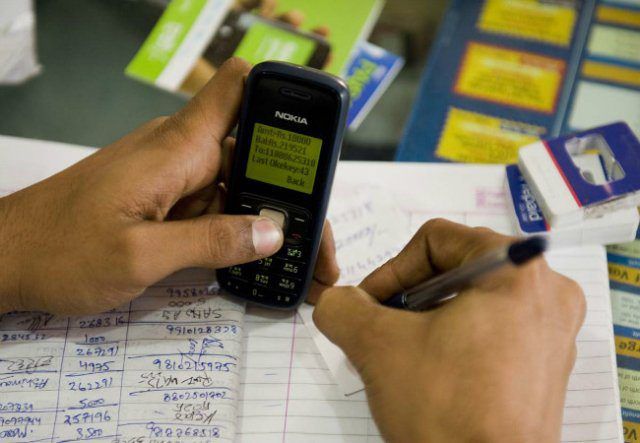Mobile Money fraudsters have succeeded in stealing GH¢26 million from Ghanaians especially the aged and uneducated users of Mobile Money who are not very conversant with the application.
The total loss value of fraud reported by Payment Service Providers (PSP) for 2022 amounted to GH¢27 million.
PSP fraud refers to fraud reported by Payment Service Providers and all fraud reported by PSPs were Mobile Money related fraud.
Out of this, some recoveries were made, reducing the actual loss to approximately GH¢26 million.
The value of loss in 2022 increased significantly as compared to a loss of GH¢12 million in 2021. This represents an increase of 117%.
These are contained in the Bank of Ghana’s (BoG) fraud report on Banks, Specialized Deposit-Taking Institutions (SDIs) and Payment Service Providers.
This report is a definitive overview of various attempted and/or successful fraudulent activities recorded by Ghana’s Banking Institutions, Specialized Deposit-Taking Institutions and Payment Service Providers. It presents the industry position for the period 01 January – 31 December 2022.
12,166 Mobile money fraud cases
Mobile money fraud registered 12,166 cases in the year 2022, as against 12,350 cases recorded in 2021, indicating a marginal decrease.
Over this period the total number of fraud incidents recorded was 15,164.
80% of fraud relate to Mobile Money
Out of this number, Mobile Money alone recorded 12,166 cases, representing 80% of the total fraud count, whiles the banks and SDIs reported 2,998 cases representing 20% of the total fraud count.
The two main types of mobile money fraud reported by PSPs were transfers made to the wrong person and cash reversals.
Wrong transfers
Wrong transfers refer to instances where a victim inadvertently transfers money meant for a particular recipient to a wrong mobile money wallet.
The recipient immediately cashes out the money before the transaction can be reversed by the PSP.
Cash reversal
Cash reversal occurs when a fraudster calls to demand reversal of a transaction from a victim after sending a fictitious mobile money credit notification to the victim’s phone.
The fraudsters then convince the victims that they have mistakenly been credited money to their account and appeal to be refunded.
The victims on seeing the message and without checking the balances in their mobile money wallets, send the amount as indicated in the fake credit messages, only to realize later that no money has actually been credited to them in the first place.
GH¢1 trillion e-money transactions
The year 2022 recorded a value of GH¢1 trillion e-money transactions and the volume of e-money transactions stood at 5 billion.
In 2021, the value of e-money transactions stood at GH¢978.32 billion while the volume of e-money transactions stood at GH¢4.25 billion.
There is a growing usage of e-money among Ghanaians and therefore the need for stakeholders to develop adequate fraud mitigation tools to help curb fraud.
According to the report, mobile money fraud has become very predominant, especially, to the vulnerable who mostly are unable to read.
It pointed out that there is also a lack of attention to security by most people in using the mobile money application.
Also, the BoG noted that a general lack of security awareness has largely contributed to victims easily falling prey to fraudsters.
The Central Bank said it has engaged the financial entities to put in stringent measures to mitigate the impact of this fraudulent activity.
The regulator averred that some users of mobile money do not periodically change their PIN making them easily prone to fraudsters.
According to the report, the aged and uneducated users of mobile money are not very conversant with the application.
As a result, they would usually handover the phone to other people to do transactions on their behalf. In the process, their PINs are compromised since they have to give it out to a third party to do the transaction.
BoG called for major sensitization on some targeted customers of mobile money which should be in multiple local languages to enable the vulnerable, in particular, and the public in general to appreciate it.
- Commonwealth lawyers demand reversal of CJ’s suspension - 10 May 2025
- Cedi to resume depreciation in late 2025, S&P warns - 10 May 2025
- Debt restructuring, IMF deal, gold surge propel Ghana to S&P Upgrade - 10 May 2025




